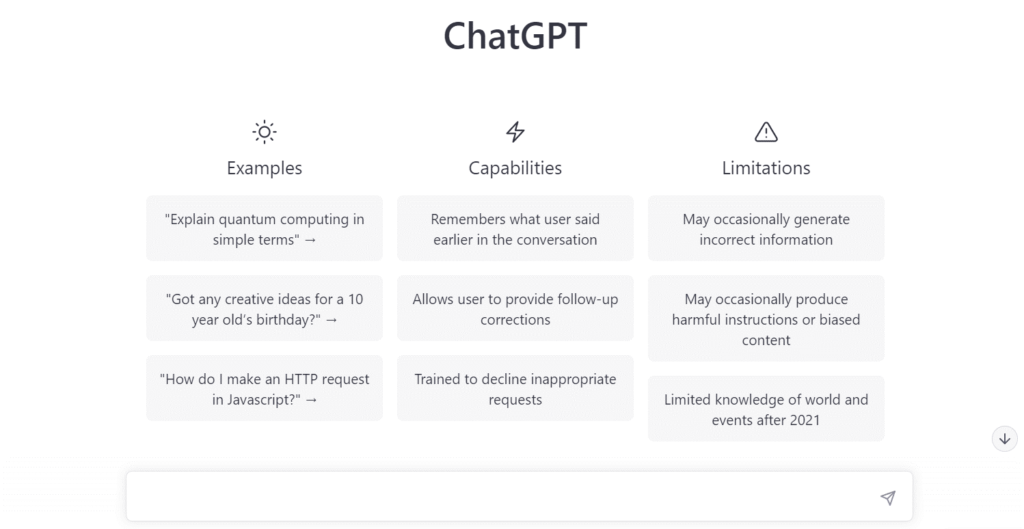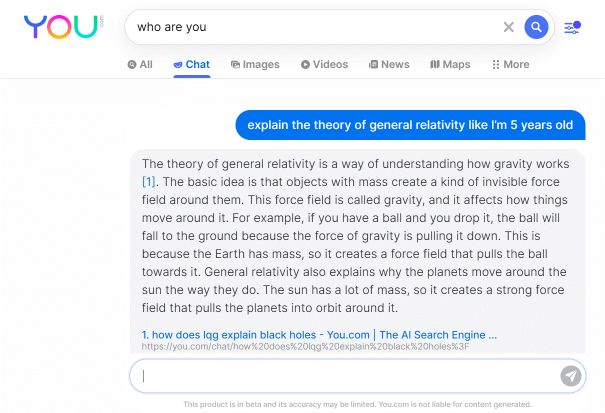Artificial Intelligence (AI) has been making waves in many industries over the past few years, and the search engine space is no exception. As AI technology continues to advance, it’s becoming clear that AI-powered search engines will soon dominate the market. Offering users more accurate, personalized, and efficient search experiences than ever before.
In this article, we’ll explore how AI is set to change the face of search engines as we know them.
The Rise of AI in Search
In the early days of search engines, results were based on simple keyword-matching algorithms. But as the amount of information available on the internet has exploded, these traditional search engines have struggled to keep up. This is where AI comes in. By using machine learning algorithms and natural language processing (NLP) techniques, AI-powered search engines are able to understand the context and intent behind a user’s search query and provide much more accurate results.
One of the key benefits of AI in search is the ability to personalize results for each individual user. By analyzing a user’s search history, location, and other data points, AI-powered search engines can tailor results to their specific needs and preferences. This leads to a more satisfying search experience and reduces the need for users to sift through irrelevant results.
One of the most well-known AI-powered search engines is OpenAI’s ChatGPT. OpenAI, a research company based in San Francisco, has created a cutting-edge artificial intelligence chatbot named ChatGPT. ChatGPT uses cutting-edge AI technology to provide conversational search results. This means that instead of typing in keywords, you can ask it a question in natural language and it will respond with an answer.
Another example of an AI-powered search engine is Google’s Bard. A new AI chatbot service has recently emerged as a game-changer in the tech world – Bard. This cutting-edge technology leverages LaMDA (Language Model for Dialogue Applications) to access a vast pool of information from the internet and provide answers that are both insightful and relevant to users’ questions. Bard’s unique approach to conversational search is setting the standard for what a next-generation AI chatbot service should be.
“ChatGPT & Bard are poised to make a big impact in the search technology landscape. However, despite its advanced capabilities, experts say that ChatGPT & Bard are not yet capable of completely replacing the Google search engine.”
The Future of AI and Search Engines
As AI technology continues to evolve, we can expect to see even more advanced capabilities in the search engine space. In the future, it’s likely that traditional search engines will become a thing of the past, and that AI-powered search engines will be the norm. These search engines will provide users with a faster, more accurate, and more personalized experience, making it easier for them to find the information they’re looking for.
One of the most exciting areas of AI in search is conversational search. With conversational search, users can interact with search engines in a more natural, human-like manner, using phrases and questions, rather than just keywords. This opens up a whole new world of possibilities for search engines, allowing them to understand and respond to complex queries and requests.
Gone are the days when search engines would only give you a list of references, leaving you to sift through countless web pages to find what you were looking for. Thanks to the advancements in language models like GPT-3, companies are now creating search engines that provide direct and pointed answers to your questions, along with relevant web pages.
One such company is the privacy-focused search engine You.com, which has recently launched youChat – a chatbot that functions similarly to ChatGPT. With this new feature, you can expect upfront answers to your queries along with the appropriate citations. This new approach to search is changing the way we access information online, making it faster and more intuitive.
Are We Ready for AI Chatbots to Take Over Search Engines?
AI is revolutionizing the search engine landscape, bringing with it a range of benefits for users and businesses alike. From improved relevance and accuracy to a more personalized experience, AI is set to take over search engines in the near future. Whether you are a user or a business, it is important to stay up to date with these developments and take advantage of the opportunities that AI provides.
So, that’s it from my side today. What do you think about the same and do you think that these AI chatbots are going to take over our traditional search engines in the near future? Tell all your thoughts in the comments below.
For more of such latest tech news, troubleshooting guides, and tips & tricks related to Windows, Android, iOS, and macOS, follow us on Facebook, Instagram, Twitter, and YouTube
Next Read:






 Subscribe Now & Never Miss The Latest Tech Updates!
Subscribe Now & Never Miss The Latest Tech Updates!